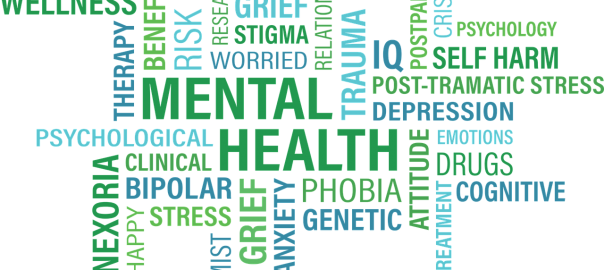The efforts to reduce the stigma around mental illness is gaining momentum. With awareness, more people are seeking help. In the U.S., one in five adults lives with mental illness. Mental disorders change how we see and interact with the world. Healthy people.gov reports that untreated mood disorders can cause physical pain that may lead to impairment and sometimes death. Stress and anxiety are mental health disorders affecting thousands of people. Those living with mental health issues have the right to understanding and compassion. When society can view mental health as a treatable condition, the same way that physical illness is seen, individuals and families and communities will fare better.
Mental Health Awareness
Numbers for people living with mental health concerns include young adults trying to navigate the world of work, school, and personal relationships. Death of loved ones is never easy and the grief and loss process is often considerable. Finding and maintaining one’s chosen career path and the desire to keep up with peers doesn’t help. The housing market and just how to afford safe and reasonable housing costs cause anxiety on their own. Make self-care a priority and know that answer does not lie at the bottom of an alcohol bottle or other substances. It doesn’t. Talk to someone.
Don’t Sleep on Community Resources
With the Internet, things changed. There are calls to raise awareness through group discussions, memes, Gifs, articles, and video. Community-based organizations offer workshops which are often free or sliding scale to attend. Meetings on the ground and online provide safe spaces for people to obtain information and get questions answered. Group community meetings are a source of therapy via peer support. You don’t have to talk if you aren’t ready. Just sitting and listening is fine. It can be helpful to listen to others who share similar experiences. It can help people learn to recognize triggers and develop and coping skills for handling situations. Membership with National Alliance on Mental Illness (NAMI), can be had for just five dollars. It gives access to information and the opportunity to attend meetings. They keep up to date stats. NAMI gives numbers and expresses concern over the number of incarcerated youth and adults and homeless people not being treated.
Feeling Out of Sorts?
There are different levels of depression. Catching the blues can happen to anyone at any time. A bad day or series of bad days. An unexpected crisis can spiral downward fast. It may feel like you can’t breathe at times causing anxiety and in more serious cases panic attacks. Not being able to get out of bed, feeling drained and irritable, and not feeling like ourselves means something is going on. We all get down from time to time. That’s normal. Don’t let it get to the point where you become immobilized.
Signs of Depression
Depression contains elements of despair and hopelessness. Loss and grief, a bad memory that won’t go away, concerns over finances, breakups, and family arguments can all trigger emotions and mood, causing a person to shut down. It’s best not to ignore sleeplessness, lack of appetite, and even changes in sex drive, they can all point to an underlying cause.
The other thing that can happen when we aren’t in touch with our feelings or avoid them is to overindulge in things like eating and sex to mask feelings. It’s easy to try and push bad feelings down by medicating, but avoidance comes with a price.
There are different levels of depression. The most serious requires treatment. Talking with a trained professional is helpful for many people. After the initial intake where you answer a lot of questions based on family history, substance abuse and how you handle life’s challenges. Medication may be prescribed to help. It’s important to remember that mental health disorders have to do with how the brain is wired. A person cannot turn off and on because people are concerned or don’t believe you have an issue. It’s real. Be encouraged to seek help. There are certain conditions that are best treated with medication. A trained professional can make that decision.
Post Traumatic Stress Disorder (PTSD)
Post Traumatic Stress Disorder (PTSD), terminology for soldiers living with mental illness following tours of duty has company. Studies show that anyone exposed to trauma can develop PTSD. Survivors of childhood sexual assault and other life-altering situations make PTSD possible. It’s listed as a disability and getting treatment is necessary. With the disorder comes nightmares, anxiety, and the inability to sleep or function with loud noises. Hence the call every Independence Day for citizens to be mindful that firecrackers are not fun for everyone. Compassion and understanding for fellow citizens is a good thing.
Healing Arts
Alternative therapy utilizes healing arts including yoga, meditation, massage, Reiki, acupuncture, healthier diet, and getting out of the house. A community art class, journaling and other writing, all help to tap into creativity and can help calm the spirit. Energy work includes crystals, singing bowls and working with a healing artist on breathing techniques and being present and in tune with the body.
Self-Care Matters
We know when we’re off balance. It can be a really scary feeling. If we grew up with mental illness it can really put us at odds. Those feelings have to be addressed for well-being. Comedian Robin Williams lost his battle with depression and committed suicide. So have many others Famed actor Jenifer Lewis is very candidate in her interviews about her battle with mental illness and sex addiction which she also discusses in her memoir, The Mother of Black Hollywood. She’s speaking out because she,” Lived in darkness for decades.” Bipolar disorder can cause one to oversexualize. So can denial. Stay on top of mental health and live your best life.
Copyright 2018 by C. Imani Williams. All rights belong to the author and material may not be copied without the author’s express permission.
